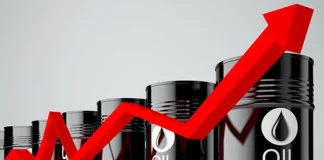The Minister of state for Petroleum Resources Ibe Kachikwu, said the Federal Government would advertise concessions for pipelines and depots beginning from March.
He had in the latter part of 2015 hinted the government’s intention to privatize the country’s over 5000 km pipelines in order to enhance efficient management of the infrastructure and bring pipeline vandalism to the barest minimum.
Kachikwu, who is also the Group Managing Director of the Nigerian National Petroleum Corporation, NNPC, told Reuters in an interview that Nigeria is also in talks with oil majors and banks to raise capital for new drilling and to repay up to $4bn in debt that NNPC has accumulated over years.
Nigeria produces oil with foreign and local firms through production-sharing contracts and joint ventures (JVs) but investments have been held up because NNPC has been unable to pay its part: bills have been piling up since 2012.
“The target is that over 2017, we’ll begin to look at zero,” he said in the interview, referring to debt and the goal of ending the need for JVs to depend on NNPC cash.
NNPC was in talks with oil majors such as Italy’s Eni and oil traders Vitol and Gunvor, seeking partnerships to revamp assets such as refineries after decades of neglect.
“My idea would be to bring in third party capital, do a joint investment and management of the refineries and work out a pay-out process over 5 to 6 years basically on lifting of some portion of the finished products,” Kachikwu said.
The NNPC boss said the firm would also restructure Strategic Alliance Agreements (SAA) held by Atlantic Energy to raise funds for oil blocks sold by Royal Dutch Shell.
NNPC, according to him, is expected to conclude a deal within two months for a new partner to pay up to $1.3 billion to take over the Atlantic agreements. The blocks were originally sold to indigenous oil companies by Shell.
“I’m saying to Atlantic, sorry, you’re out because there’s been a breach,” he said. “Whoever comes in has to give a sign-in fee almost equivalent to what I’ve lost … we’ll have a massive increase in volume out of those fields, we’re going to have 150,000 to 200,000 bpd from the current 40,000 to 50,000 bpd.”









